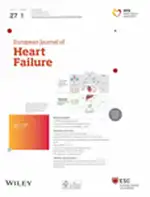Contents:
- Criteria for Evaluating Cardiovascular and Heart Disease Journals
- Editorial Standards and Peer Review Process
- The Top 10 Cardiovascular and Heart Disease Journals
Criteria for Evaluating Cardiovascular and Heart Disease Journals
How do you select the cardiovascular or heart disease journal that’s right for your research?
The process can be long and stressful, with lots to coordinate. You might have deadlines around major conferences, commercial pressures…and of course, the worry that if you choose the wrong journal, you’ll damage both your own credibility and that of your organisation.
We’ve helped 1000s of researchers, academics and publications managers find the perfect journal for their cardiovascular research. These are the criteria we use to evaluate them.
Impact Factor and Citation Metrics
Impact factor and related citation metrics are commonly used benchmarks for assessing cardiovascular and heart disease journals. They help quantify a publication’s influence within the academic community, and most researchers are keen to get published in a journal with as high an impact factor as possible.
But how useful is impact factor, really?
Tracking cardiovascular journals’ impact factor ranking can offer researchers a quick snapshot of how widely read – and therefore impactful – a publication may be.
That said, metrics should be interpreted carefully. While ranking cardiovascular and heart disease journals by impact factor is a useful starting point, it’s not the entire story. You should also consider the journal’s scope, editorial board expertise, and the rigour of its peer review process.
These elements can be just as critical to ensuring a journal’s overall quality as numerical indicators like citation counts.
When we support our clients with journal selection and submission, we’ll take account of all these factors.
These elements can be just as critical to ensuring a journal’s overall quality as numerical indicators like citation counts.
We'll deliver straight to your inbox
Editorial Standards and Peer Review Process
The editorial standards and peer review process of a journal often determine the reliability and credibility of its articles. Leading cardiovascular and heart disease journals, such as those focusing on coronary heart disease research or heart failure innovations, typically employ a thorough vetting system where experts in the field evaluate submissions for methodological soundness, clarity of argument, and novelty.
Journals that uphold strict editorial policies are more likely to publish high-quality cardiovascular disease peer-reviewed articles, thus serving as indispensable resources for clinicians, researchers, and policy-makers.
Whether you are preparing a cardiovascular journal submission or simply looking to expand your understanding of the field, prioritising publications with robust peer review frameworks will help ensure you’re engaging with trustworthy and influential content.















.webp)

